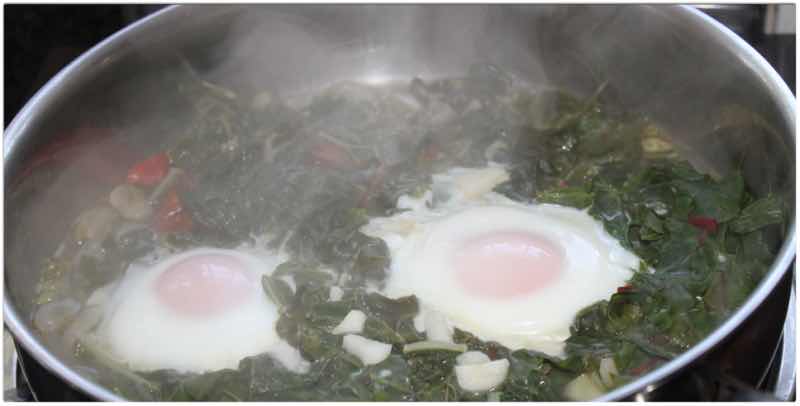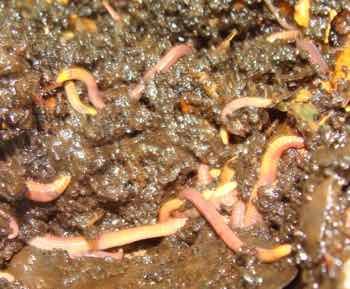- Homepage
- Fast dinners
- Making Vegetable Stock From Scraps
Making vegetable stock from scraps
Making vegetable stock from scraps should be a part of every "waste-not" philosophy. So many people enjoying typical grocery store food are deficient in important micronutrients; stalks of spinach, celery leaves that are past their best and carrot ends will all contribute to wellness.
As a rule of thumb a broth is gently boiled for a shorter period; say an hour. But a stock is simmered for considerably longer and is much thicker; it may gel when cooled.
In fact nearly two billion souls are suffering from malnutrition; half of them are starving and the rest are under the hammer from our modern ultra-refined supermarket meals.
The only "super" part is convenience and we pay a terrible price for it; by losing our souls and wellbeing. You could use this vegetable stock from scraps to make a holy grail soup.
But we absolutely refuse to take perfectly good vegetables, extract the nutrients and toss the fibrous fraction as is commonly done is making a stock. Feeding the friendly flora in the colon with the undigested carbs in our food is an essential part of supporting the immune system[3].
 Woody broccoli stalks, old broad beans and a tomato that is past its best
Woody broccoli stalks, old broad beans and a tomato that is past its bestThe only exception is when vegetables in the garden get old and woody; or you genuinely have a glut that you can't give away to hungry people, neighbours and friends. Then you might consider tossing the fibrous remains.
Today we have a tomato that has passed its best, the end of a carrot and some old broad beans; not seen are the stub of an onion and the inner bulb of the garlic where the cloves are too small to be worth peeling.
Then there are some stalks of cauliflower and broccoli; and a sprig of thyme. A potato that has past its best would often also go into making vegetable stock from scraps.
Consider adding a few olives too; the oil helps in the absorption of the micronutrients.
Traditional vegetable stock
Tradition has it that when making a vegetable stock you should have onion, carrots and celery roughly in equal quantities; and then strain off and discard the fibre. That's wonderful for the pros but we plebs can use any leftovers. We are simply aiming to add yet more nutrients to enrich our meals rather that tossing them into the compost bin.
I am reluctant to go out and buy celery when I have a glut of broccoli in the garden; for the professional cook it's another matter.
There are literally thousands of phytonutrients, many completely unknown and certainly not researched that would be beneficial to our wellbeing. Tracking each and every one of them obviously is impossible; we'd become neurotic.
By making vegetable stock from scraps we are simply adding yet more of these undiscovered wholesome compounds to our food; for enriched flavour too.
Get into the habit of tossing all your scraps into a bag and keeping them in the fridge. Every few days consider making a vegetable stock from scraps. There are no hard and fast rules about the ingredients in our home.
Ingredients
- Ends of an onion
- Old bits of carrots and potatoes
- Celery leaves and perhaps stalks
- Woody broccoli, cabbage and cauliflower stalks
- Spinach and kale stalks
- Tomato, beans and radishes
- Herbs such as thyme and marjoram
- Even a couple chicken bones
Go for it
- Very roughly chop all your ingredients and toss them into a small pot.
- Add a touch of salt.
- Cover with boiling water.
- Simmer for an hour at least; longer if you feel inclined to make a true "stock."
- Strain through a colander. Either use immediately or cool; and then freeze in small containers.
I'm not terribly disciplined about labeling things in the freezer so whenever possible I would immediately use my vegetable stock to enrich a soup or stew that is in the making. It does wonders for example for Eggs Florentine which can become a little dull.

Try cooking your lentils in this vegetable stock from scraps.
Making vegetable stock from scraps
When making vegetable stock from scraps you really can use anything that comes to hand; or is growing in the garden. Leaves of leeks, parsley stalks and peppers would all fit the bill.
In order to usefully dispose of the scraps after straining off the fibrous part that you were going to toss in any case, consider starting a worm farm. Cooked material really shouldn't go into the compost heaps.

The wonder of a worm farm is that it's like a compost heap on steroids; in just six weeks it will turn all your kitchen waste including these cooked vegetable scraps into beautiful humus for the garden.
Professionals and plebs
There are some things only a professional can do; like brain surgery and designing a bridge to cross a highway. For the rest of us, we can make pretty good vegetable stocks from scraps that might raise the eyebrow of a Cordon Bleu cook but will certainly improve the flavour of our soups and stews.
A bone broth is boiled gently for a much longer period; on a slow wood stove overnight would be perfect. That does a better job of extracting the collagen that is so tasty and even helpful for those suffering from arthritis. When cooled it will form a thick gel.
Really you don't need to chop all the bits to the same size but it is a good idea to add the softer herbs near the end of the process. When making larger quantities consider using a pressure-cooker.
This afternoon I am cooking a chicken curry that calls for a cup of water; far better is making vegetable stock from scraps.
What is a lignan is a subject that every woman should be up on; these phytonutrients halve the chance of a malignant breast tumour. To get them you have to use the pulp of vegetables too.
Bouquet Garni
Of course making vegetable stock from scraps is really just a bouquet garni; a bundle of fresh herbs tied together and then added to soups and stews[1]. We like to use up all our bits and bobs; there's much good nutrition to be had that we once tossed to the garbage.
Did you know for example that huge numbers of people enjoying typical industrial food are getting less than half the amount of folate needed[2]; it's required in hundreds of biochemical reactions in the body. There is plenty to be had when making vegetable stock from scraps, particularly the greens.
It is comes as no surprise that we are so sickly. Insufficient magnesium, too little calcium and not nearly enough lutein are absolutely typical of those in Western society. The ramifications are simply unimaginable.
We follow the Blue Zone philosophy. Spend your days nurturing and preparing your own food; or many times those hours consulting doctors and pharmacists. Would you too not like to be full of energy and joy at ninety, sipping tea under the trees you once planted? Watching the great-grandchildren growing up is our desire.
Blue Zone longevity is for all who will take the time to live mindfully and actively; beware the couch, long hours at the computer stool and much of the ultra-processed food in the grocery store.
Hypertension and the stalks of greens
It's interesting that there is twice as much organic nitrate in the stalks of spinach and kale compared to the green leafy part; they used to get tossed. Along with potassium salts it is the compound that helps the great vessels to relax and lower blood pressure.
Now these stalks go into making vegetable stock from scraps.
When browsing use right click and "Open Link in New Tab" or you may get a bad gateway signal.
What is vegetable stock made of?
Vegetable stocks are used to add flavour and important nutrients to other dishes. Typically one would toss in carrots, onions and other aromatic vegetables such as celery; and herbs like thyme and bay leaves.
But really you can employ any scraps that you are fairly sure have not been sprayed with ecocides; you don't want them in your food. They have been designed to kill.
We recommend not straining out the solids but incorporating them in your soups and stews. Only 5% of those enjoying typical grocery store fare are getting enough fibre.
The material expressed on this page is gleaned from the nutritional and environmental literature; it is clearly referenced. A plain distinction is made between the author's opinion and that which is scientifically proven. When in doubt consult your health professional.
To suggest a correction or clarification, write to Dr Bernard Preston here. Contact.
Newsletter
Our newsletter is entitled "create a cyan zone" at your home, preserving both yourself and Mother Earth for future generations; and the family too, of course. We promise not to spam you with daily emails promoting various products. You may get an occasional nudge to buy one of my books.
Here are the back issues.
- Lifestyle and ideal body weight
- What are ultra-processed foods?
- Investing in long-term health
- Diseases from plastic exposure
- Intensive lifestyle management for obesity has limited value
- A world largely devoid of Parkinson's Disease
- The impact of friendly bacteria in the tum on the prevention of cancer
- There's a hole in the bucket
- Everyone is talking about weight loss drugs
- Pull the sweet tooth
- If you suffer from heartburn plant a susu
- Refined maize meal and stunting
- Should agriculture and industry get priority for water and electricity?
- Nature is calling
- Mill your own flour
- Bake your own sourdough bread
- Microplastics from our water
- Alternative types of water storage
- Wear your clothes out
- Comfort foods
- Create a bee-friendly environment
- Go to bed slightly hungry
- Keep bees
- Blue zone folk are religious
- Reduce plastic waste
- Family is important
- What can go in compost?
- Grow broad beans for longevity
- Harvest and store sunshine
- Blue zone exercise
- Harvest and store your rainwater
- Create a cyan zone at your home
Did you find this page interesting? How about forwarding it to a friendly book or food junkie? Better still, a social media tick would help.
- Homepage
- Fast dinners
- Making Vegetable Stock From Scraps
Address:
56 Groenekloof Rd,
Hilton, KZN
South Africa
Website:
https://www.bernard-preston.com